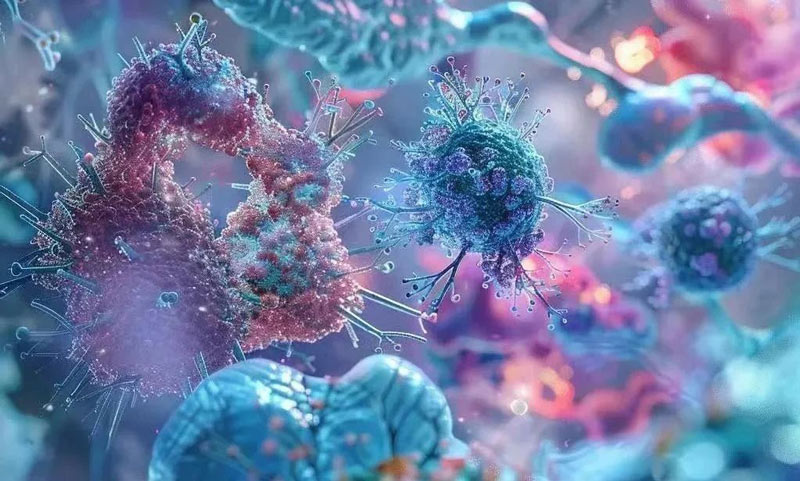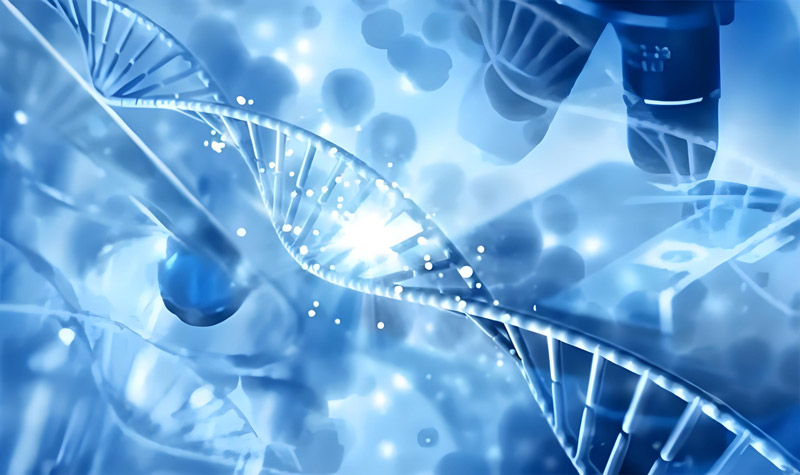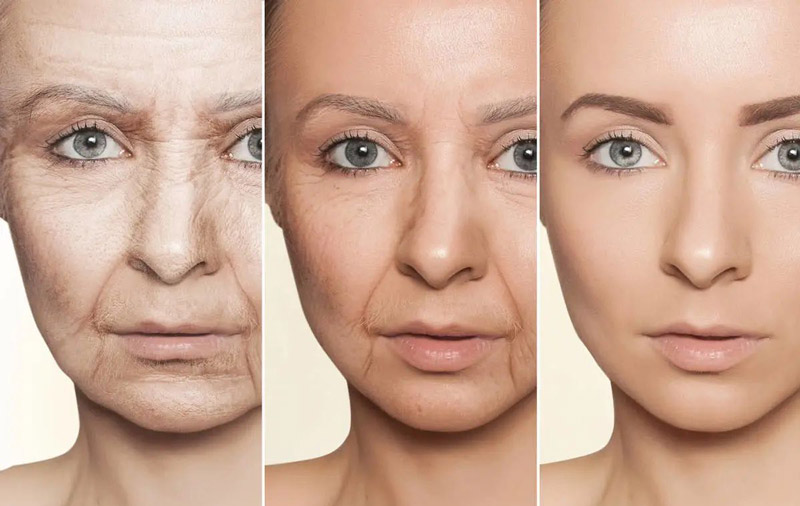Just how important NAD+ is to our bodies, let's start with some numbers
Our bodies are made up of about 37 trillion cells, and each of your 37 trillion cells relies on NAD+ to do its "job" in order to maintain itself.
Without NAD+, your heart won't be able to pump blood through your veins;
Your lungs don't take in any air, and the neurons in your brain don't fire.
Without this key molecule, none of the vital organs in your body will function.
NAD+ is like the oil in your car, it keeps your engine running smoothly.
According to David Sinclair, co-director of the Center for the Biology of Aging at Harvard Medical School:
NAD+ is the most important substance to maintain the young state of the human body, and is also one of the essential molecules to maintain life, without it, people will die in 30 seconds.
What is NAD+
NAD, short for nicotinamide adenine dinucleotide in Chinese, is a coenzyme (necessary factor to assist various enzymes to catalyze REDOX reaction), which is responsible for electron transfer in the human body. Depending on whether the transferred electron is carried, NAD is divided into two forms, NAD+ and NADH, with NADH being the reducing form and NAD+ being the oxidizing form.
NAD+ and NADH are like two sides of the same coin, very similar but absolutely irreplaceable.
The difference is that the latter has one more positively charged H and two more negatively charged electrons than the former.
The two can be transformed into each other in the human body, so NAD+ is often used as a substitute for NAD.

NAD+ is a coenzyme of many dehydrogenases that play roles in metabolic pathways such as glycolysis, the tricarboxylic acid cycle, and the respiratory chain.
In these processes, the accepted electrons of NAD+ are reduced to NADH, which then transfers the electrons to other molecules, thus driving the synthesis of ATP.
This electron transport process is crucial for energy production in cells.
NAD+ is also an activator of Sirtuins, an important longevity gene that regulates cell response to stress and influences cell survival and aging processes.
As people age, the level of NAD+ in the body gradually declines, which is thought to be one of the causes of aging.
By supplementing with NAD+, physiological changes associated with aging can be reversed to some extent, such as improving muscle strength, skin condition, and blood health.
NAD+ is also involved in the DNA repair process, helping to maintain the stability and integrity of the genome.
This has important implications for preventing cancer and other diseases associated with DNA damage.
important role of NAD+ in the human body
NAD+ plays a vital role in the human body and is indispensable for maintaining vital activities and health.
Here are the important roles of NAD+ in the human body:
Energy metabolism
NAD+ is one of the key components in the cellular respiratory chain, helping to convert food into usable energy through REDOX reactions.
In this process, NAD+ receives electrons and is reduced to NADH, which then transfers electrons to other molecules, driving the synthesis of ATP.
DNA repair
NAD+ is a substrate for PARP (polyADP-ribose polymerase), which is essential for the detection and repair of DNA damage.
As people age, levels of NAD+ in the body decline, leading to a decline in DNA repair, which in turn accelerates the aging process.
Longevity gene activation
NAD+ is also an essential substrate for the Sirtuins family of proteins, which have been implicated in extending life span and regulating inflammation and stress responses.
By activating Sirtuins, NAD+ helps delay age-related physiological decline.
Cell signaling
NAD+ is also involved in a variety of other cellular signaling pathways, including regulation of circadian rhythms, immune function, and neuroprotection.
For example, it boosts the production of the neurotransmitter dopamine, stimulates muscle growth and helps improve symptoms of Parkinson's disease;
At the same time, it can also promote the biosynthesis of norepinephrine and serotonin, alleviate depression and Alzheimer's disease.
anti-aging
Due to the importance of NAD+ and its tendency to decrease with age, several studies are exploring the possibility of supplementing NAD+ prelates such as NMN (Nicotinamide Mononucleotide) or NR (nicotinamide ribose) to increase NAD+ levels in the body as a potential anti-aging strategy.
Promote health
Studies have shown that NAD+ helps maintain cardiovascular health, improve muscle function, strengthen the immune system, and more.
It is also associated with a variety of health benefits such as preventing cardiovascular diseases, improving hair loss, protecting the liver and preventing liver cancer.

NAD+ levels in human body decline cause
With age, the body's ability to synthesize NAD+ gradually declines.
The synthesis of NAD+ requires a variety of precursor substances, such as tryptophan, niacin, niacinamide, etc.
Aging may lead to a decrease in the absorption and utilization of these precursors, as well as a decrease in the activity of the enzyme that synthesizes NAD+, resulting in a decrease in NAD+ levels.

Increase in consumption
During aging, the body faces more oxidative stress and DNA damage, which requires more NAD+ to be consumed for repair.
Chronic inflammation, poor lifestyle (such as smoking, alcohol abuse, high-sugar, high-fat diet, etc.) can also increase the consumption of NAD+.
harm of NAD+ level decline
The level of NAD+ in the body determines the speed of the aging process.
Changes in NAD+ homeostasis are found in almost all age-related diseases, including neurodegenerative diseases, diabetes, and cancer.
Chini et al. 's review in "NAD Mechanism: Its Role in Cellular senescence and senescence" pointed out that the dysfunction of NAD metabolism is one of the important symptoms and risk factors of cardiovascular diseases, and the decrease of NAD+ level will affect the energy supply of the heart, and then destroy the pumping function of the heart.
In age-related diseases such as cancer, short telomere syndrome and fibrosis, NAD+ related metabolic disorders are also important pathological mechanisms.
Affect energy metabolism
NAD+ is one of the key components in the cellular respiratory chain and is involved in the aerobic metabolism of glucose to provide the body with essential energy.
When NAD+ levels drop, the energy metabolism process is blocked, which may lead to fatigue, decreased physical strength and other symptoms.
Accelerate aging process
NAD+ is closely related to the activation of longevity genes Sirtuins, which can regulate cell response to stress and influence cell survival and aging processes.
As people age, the level of NAD+ in the body gradually declines, which is thought to be one of the causes of aging.
Reduced levels of NAD+ lead to decreased DNA repair, which in turn accelerates the physiological decline associated with aging.
Increased risk of disease
Decreased levels of NAD+ are associated with a number of age-related diseases, including neurodegenerative diseases (such as Alzheimer's disease, Parkinson's disease), diabetes, cancer, and cardiovascular disease, among others.
These diseases are often accompanied by changes in NAD+ homeostasis, and the reduction of NAD+ levels may be one of the pathological mechanisms of these diseases.
Affect heart function
NAD+ has an important effect on myocardial energy metabolism and function.
When the NAD+/NADH ratio in cardiomyocytes is reduced, it may affect myocardial function and lead to impaired diastolic function of the heart.
NAD+ has also been linked to cardiac ischemia/reperfusion injury, myocardial remodeling, and heart conditions such as arrhythmias and heart failure.
Promote tumor development
Despite the potential role of NAD+ in anti-aging, recent research suggests that absorption of NAD+ may stimulate tumor cell growth.
This is because NAD+ is involved in the process by which senescent cells secrete pro-inflammatory factors that may promote tumor development.
The next step is to further explore various ways and means of NAD+ supplement.
There are already some related supplements on the market, and there are many different brands in the UK and Japan, as well as in Europe and the United States, but their quality and effectiveness vary.
Each person's physical condition and response to supplements is also different.
At present, the two most widely used brands in the world, the United States and the United Kingdom, are trustworthy, and the choice needs to be targeted according to their own needs.
Some good habits in life also help to maintain the level of NAD+ in the body.
For example, maintain a moderate amount of exercise, exercise can promote metabolism, enhance cell vitality, and thus affect the synthesis and utilization of NAD+ to a certain extent.
The importance of NAD+ to human health is self-evident, and supplementing NAD+ is a direction worthy of attention and exploration.
But in this process, we have to be careful, fully with the guidance of professionals, combined with a healthy lifestyle, in order to better play its role, for our health escort.






